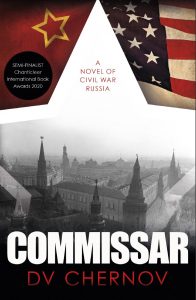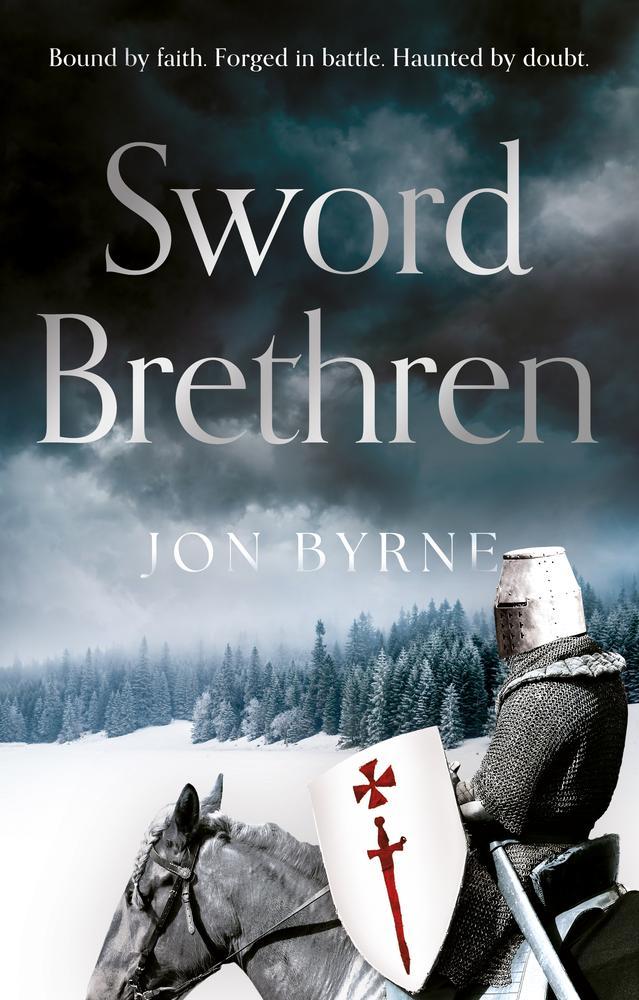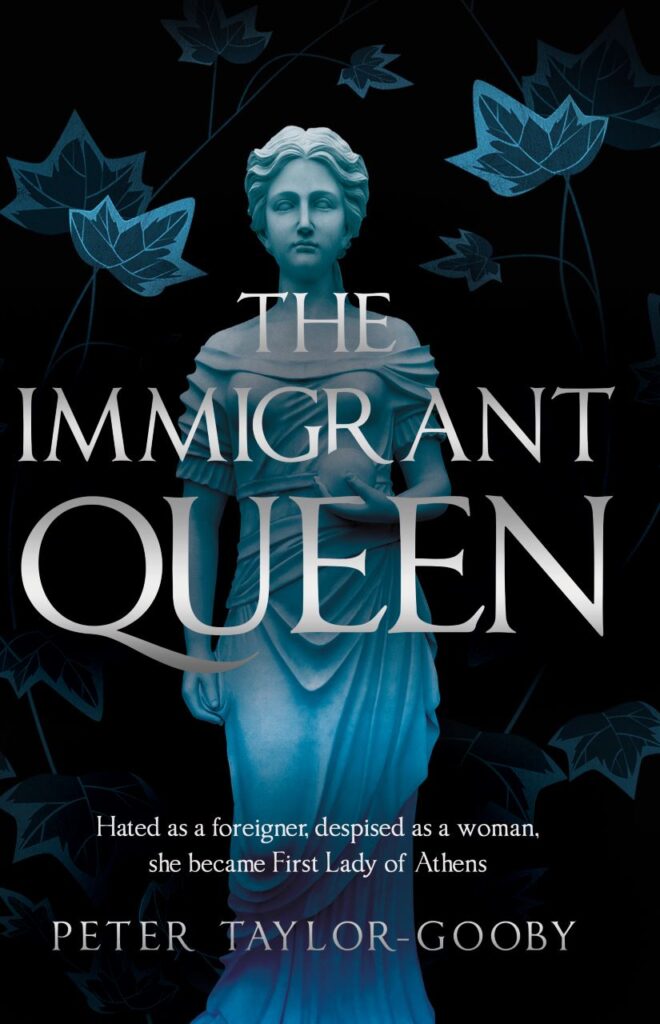Launch: D.V. Chernov’s Commissar: A Novel of Civil War Russia
INTERVIEW BY DAVID CONNON
D.V. Chernov is an author of historical and crime fiction. He has an avid interest in history and technology and enjoys spending time in the mountains. He holds MA in English and MBA degrees and resides in Colorado, US, with his wife and daughter. His novel Commissar was a Semi-Finalist in the 2020 Chanticleer International Book Awards.
What is your “elevator pitch”?
In 1918, Russian agent Anna Sokolova races against time to hunt down British spy Sidney Reilly, trying to thwart a plot to change the course of history and pull Russia back into World War I.
What attracted you to writing historical fiction?
Historical fiction offers us a unique opportunity to better understand ourselves, humanity, and our world in the context of where we’ve come from.
 How did you become interested in Civil War Russia?
How did you become interested in Civil War Russia?
I find this period fascinating from the historical and human angles. Russia at the time was the second-largest empire in the world. At the height of World War I, when the three-centuries-long Romanov rule abruptly ended, everyone – communists, capitalists, socialists, anarchists, monarchists, and nationalists – wanted to have a say in what happened to Russia. What followed was five years of brutal conflict across a massive theater, marked with noble ideals, heroic acts, and countless atrocities on all sides. Intriguing historical figures and ordinary people faced extraordinary changes and perils. This makes for a rich setting.
What led you to write this book?
I wanted to bring back to light this forgotten chapter of world history. In some ways, this is the origin story of the Russia that exists today. Much historical fiction on the topic is dated and culturally biased towards either the West or the East. I wanted to explore the complex human aspects of the conflict without defending either side.
American character Raymond Robins lists all the factions fighting against the Reds (Communists). As a Missouri resident, does Russia in late 1918 remind you of Missouri during the American Civil War? For example, soldiers – Union, Confederate, and guerrillas – overran the state, waging war, plundering, and frightening civilians.
Absolutely. Any war has a devastating impact on civilian populations. At times there is collateral damage, but, oftentimes, devastation is intended to punish or demoralize and deter resistance. In civil wars, there are many more than just two sides to the conflict. There is a broad spectrum of ideological convictions, and alliances tend to be more fluid. People often end up switching factions or forming new ones as their perspectives evolve. These are often not professional soldiers but regular people who suddenly had to pick up weapons and choose sides to defend what they believe to be their rights and freedoms. In civil war, deep conflicts can tear apart regions of a country, single towns, or even families.
Do you have a favorite character in Commissar? Mine is Makhno, the gregarious Cossack warlord.
I like Makhno as well. He was a fun character to research and write. Makhno has a somewhat legendary historical status in Ukraine, and his real experiences as sometimes ally and sometimes enemy of the Red Army foreshadowed relations between Russia and Ukraine over the 20th century. It’s hard to pick a favorite character among the cast of Commissar. Civil wars are incredibly complex historical events, and each character brings a unique perspective.
What was the most enjoyable part of researching or writing your book?
Reading through stacks of historical books and sifting through online archives. Often, I found it difficult to tear away from researching to actually do some writing!
Are any characters (besides Felix Dzerzhinsky) based on historical figures?
Actually, most of them are. Only a handful of the dozens of characters are fictional. Still, for those readers who, like me, love to dive into the history behind the story, I put together a quick reference to the characters of Commissar on the project’s website.
What primary or secondary sources were most useful in writing Commissar?
Antony C. Sutton’s Wall Street and the Bolshevik Revolution and Richard Spence’s Trust No One: The Secret World of Sidney Reilly were indispensable secondary sources. Excellent primary sources were Boris Savinkov’s memoirs; Bruce Lockhart’s Memoirs of a British Agent; Raymond Robins’s Own Story (by William Hard); and V-CHEKA (archives and transcripts pertaining to CHEKA agency operations). But there is really no substitute for personal experience. Having grown up in the Soviet Union during the final decades of the Cold War, I had intimate knowledge of the Russian culture and Soviet ideology. Having lived in the U.S. for several decades since leaving Russia, I enjoyed using my knowledge of both cultures to write the often conflicting but sincere interactions between the two main characters, Anna and Will.
What advice would you give to authors who place a novel in three continents?
The wider the setting, the more important it is for the author to show common themes. It’s easy to get lost in describing exotic locations and complex historical contexts. But we don’t want the reader to struggle to connect seemingly random people, places and events. If you create characters that are compelling and relatable, your readers will be more engaged in the story, no matter how many continents it spans.
 In your research and writing, what have you learned about the human experience?
In your research and writing, what have you learned about the human experience?
You have to keep an open mind. No matter what you learned in school, when you start digging deeper, you will find things that surprise you. Historical events and their causes are never as clear-cut as the textbooks portray, and historical figures are never as one-dimensional. I try to always seek out alternate perspectives in order to “triangulate” the most complete understanding of the events. Whenever possible, I also try to find period news articles and letters and diaries of ordinary and famous people. Those first-hand accounts can really open up the past to you and your readers.
What is your next project, and how far advanced is it?
Currently, I am finishing the first book of a present-day detective mystery set in the Colorado Rockies. This novel will release in the second half of 2022, and it has a hidden connection to the world of Commissar. After that, I plan to return to 1919 to write book two of the Commissar series.
![]()
HNS Sponsored Author Interviews are paid for by authors or their publishers. Interviews are commissioned by HNS.






